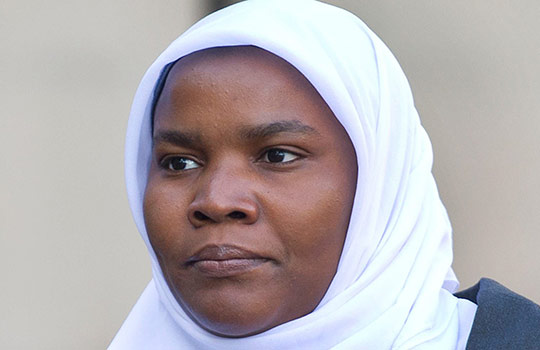Helgi Johannsson and William Rook
Hadiza Bawa-Garba, a trainee paediatrician who was convicted of gross negligence manslaughter over the death of Jack Adcock, a 6 year old boy, was struck off the UK medical register last week after a High Court ruling, in order to maintain public confidence in the profession.
In the past ten years British medicine has seen much progress in the development of an open and honest safety culture. We report and investigate incidents, we develop action plans to prevent repetition, and we spread learning wider than our immediate circle by discussion with colleagues not only within the hospital, but at conferences, in the medical literature, even on social media. After the introduction of Duty of Candour we now include our patients in this process. We are open with them, not only about what happened, but also what we are doing to prevent it happening again.
Doctors are human and make human mistakes. All doctors—including us—have made preventable mistakes. Preventing errors is at the forefront of our practice, we employ checklists, team training, and simulation training to prevent mistakes, and reflect on our mistakes to make us better doctors. All of these require an open and honest environment for them to be effective. When a mistake happens it is almost never because of one individual and there are always circumstances that contributed to the error. Short staffing, high workload, fatigue, and inadequate supervision are common contributory factors.
Jack Adcock’s death is a tragedy. He received poor care from Bawa-Garba. He also received poor care from an overstretched system where Bawa-Garba was covering for several colleagues, including the consultant in charge of the unit. She had to work in difficult circumstances, with an IT failure, and a junior team. There are enough contributory factors to make any doctor shudder and be thankful that this didn’t happen on their watch.
Medical training is rigorous and taxing—this attracts dedicated high performing individuals with high standards who are constantly trying to do better and to learn. When we make mistakes the pain of those mistakes can be unbearable. We search our souls, blame ourselves, feel an enormous sense of guilt. We talk to colleagues as a form of counselling, we reflect on what happened. Written reflections show our educational supervisors and medical directors that we have learned from an incident, and are also helpful to us in allowing us to come to terms with what happened and to continue providing care to our patients. To a doctor this process can almost act as a Sacrament of Penance—an open, honest reflection in a place of safety where a doctor can speak freely and without reproach.
Bawa-Garba did exactly as the General Medical Council asks us to and reflected openly and honestly about her performance in Jack’s treatment. These open, honest reflections, provided as evidence of learning from a critical incident, were then used as evidence against her, as evidence of poor practice. The fact that these were used in court is extremely concerning, and a step backwards for safety in medicine. How can a doctor be expected to provide honest written reflections on their practice? Should doctors be fearful these reflections might be used in court against them? Many doctors may choose to make their reflections extremely vague to the point of being non-identifiable, or not to provide written reflections at all and simply write a note confirmed by a supervisor that a reflective activity has taken place. Although this would be sufficient evidence of individual reflection it entirely inhibits the learning from other people’s’ mistakes that wide publicity and discussion allows. In addition, if we are not in the mindset of public reflection we may well not feel safe enough to reflect in private, reducing enormously the power of reflection in learning from mistakes.
The health secretary Jeremy Hunt’s statements of concern after the ruling are a welcome sign of support. The Healthcare Safety Investigation Branch became operational last year and its core mission is “to improve safety through effective and independent investigations that don’t apportion blame or liability”. Avoiding blame and liability is vital to learning from errors and engineering a safer NHS, yet the law and the General Medical Council only look at an individual’s actions and do not take account of the conditions that individual was practising in. We feel that medical law has not undergone the same transformation as medical practice has regarding medical liability and error. The law requires urgent reform to prevent individual practitioners taking the full blame for system errors and to allow us to maximise the learning from each incident.
The death of Jack Adcock is a tragedy, but the way the process concentrated on individual failure, and used written reflections as evidence against Dr Bawa-Garba to strike her off the medical register risks many more lives by endangering the open, honest safety culture that is emerging in the UK.
 Helgi Johannsson, consultant anaesthetist, clinical director, Imperial College Healthcare NHS trust
Helgi Johannsson, consultant anaesthetist, clinical director, Imperial College Healthcare NHS trust
 William Rook, CT2 – ACCS Anaesthesia, University Hospitals Leicester NHS trust.
William Rook, CT2 – ACCS Anaesthesia, University Hospitals Leicester NHS trust.
Competing interests: None declared.
